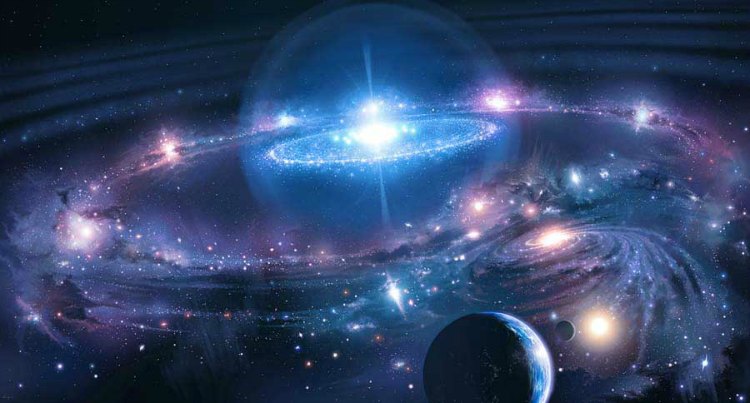Introduction to Astrology: How Astrology Came Into Existence?
Astrology is the study of the movements and relative positions of stars, planets and other celestial bodies and it is believed to have a big influence on an individual's personality. Whether you know it or not, astrology is a big part of our daily life. It is the blueprint of a person's karma through which one experiences and creates their reality.

People have always looked into the Sun, the Moon, the sky and many other stars and planets to trace time, so astrology is just as old as measured time. Astrology sees humanity as being not only influenced by hereditary factors and environment, but by the state of the solar system at the exact moment of your arrival in this lifetime too. The universe is full of different kinds of energies (life forces) and astrology is our way to interpret all of them.
Astrology is not a science of chance, but a study of cosmic events and heavenly cycles that have an impact on people's lives. In other words, it is a cosmic clock. Astrology does not say a certain event is going to happen, but that there is a (certain) possibility that an event might happen. The tremendous gravitational forces of planets affect the human's sensitive brain and forces it to respond in a particular pattern of behavior and actions. Every single action in our lives is the result of our thought-process, initialized by planets.
Astrology is able to create a detailed image of a person, their personality traits and their potential based on the natal horoscope by interpreting the roles of the planets and their position during the time of a person's birth. In today's modern world, astrology is also described as a discipline that characterizes and foretells events and things according to the position of celestial bodies. To make it easier to foretell things and events about anyone or anything, our predecessors have invented a birth chart, which is now known as horoscope.
The ancient Babylonians are known as the first astronomers, as they are credited with the birth of the astrology (somewhere after 2000 B.C.). The minutes and seconds of today's astronomical measurement come from the numeric system of the Babylonians. They were also the first people to introduce the very efficient concept of the horoscope, which is still in use today. They thought that the zodiac (horoscope) can serve as a measurement of celestial time if categorized into several equal and easily recognizable segments. So, they've chosen 12 constellations for 12 different segments and made them easily recognizable by giving them names of animals.
The Babylonian astrology was then introduced in Greece in the 6th century B.C., where huge advances were accomplished. The astrology has benefited a lot from the many Greek gods and their vitality. When the Greek gods were linked with the constellations and the planets, the astrology became much more exciting and more popular. It has also attracted a greater-than-ever interest and so became regarded as a science.
The huge interest has allowed astrology to quickly spread all over the world. Influenced by the Greek astrology, the Indians have introduced their own astrology system in the first millennium B.C. The Arabs, the Romans and the Europeans soon embraced the astrology and made it a scholarly tradition. However, people started using it for much greater uses than just foreseeing one's future. The astrology was used for predicting the weather (for agricultural purposes), forecasting wars, natural disasters, etc.
Due to the high technological advances in today's world, people have discovered a lot of other alternative approaches to foretelling and forecasting. However, astrology is still present in many cultures and traditions, only not to as great extent as once.